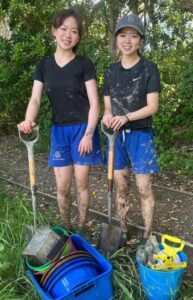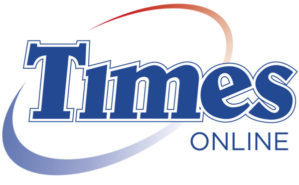
Year 13 Saint Kentigern College student Ivy Wang has won a top science prize – and she credits one of AUT’s professors for her success.
A marine science enthusiast, Ivy contacted professor of marine ecology and aquaculture, Andrea Alfaro, for guidance on a science project.
Alfaro, seeing Ivy’s passion for research, was more than happy to help.
“When Ivy contacted me, it was clear that she was a highly motivated student with a keen interest in learning to conduct research in a mangrove environment.
“It is very easy for me to say yes when I see students with such a drive and hunger for knowledge,” says Alfaro.
Over the next few months Alfaro met with Ivy online to help her design her project, discuss the background information and the sampling protocol.
Ivy was interested in researching the ecology of mangrove ecosystems, so Alfaro suggested that she look at the abundance and size distribution of the mud crab within mangrove and pneumatophore habitats.
“Pneumatophores are root structures that grow out from the water surface to facilitate aeration.
“My hypothesis, based on past studies, was that as pneumatophore zones provide abundant food sources and muddier, softer sediment for burrowing, it is likely to attract more crabs compared to mangrove zones,” says Ivy.
She undertook her field work at Tahuna Torea Nature Reserve in Glendowie, accompanied by Alfaro and a friend.
They collected sediment samples which were sieved on site and counted and measured the crabs in these samples.
Ivy also looked at sediment grain size and abundance of underground mangrove roots to characterise the habitats and interpret the crab distribution within the ecosystem.
Her findings confirmed her hypotheses.
“More crabs and larger crabs were present in the pneumatophore habitat.
This finding helps us understand the distribution of organisms in mangrove ecosystems, which may perhaps lead to better management of our estuaries,” she says.
Ivy went on to enter the NIWA South and East Auckland STEM Fair with this project.
Her research won multiple top awards, receiving first place in the Year 11-13 open category, best use of statistics award, best innovation, invention or investigation by a Year 13, and the premier award for best exhibit of the fair.
“I would like to thank Professor Andrea Alfaro, Shaneel Sharma and everyone involved in this project for their support and efforts,” says Ivy.
“Throughout the eight months, Andrea’s patience and advice boosted my knowledge and affirmed my aspiration.
Her scientifically rigorous methods, passion and spirit were inspirational to me.
“The process illuminated my first light in the path of science research and I would not be where I am now without Andrea,” says Ivy.
Alfaro says Ivy has a bright future ahead of her.
“Ivy has an innate ability to grasp complex concepts and critically analyse data,” says Alfaro.
“She is also hard working and perseverant so I was not surprised that she was awarded the top science prizes,” she says.
“I look forward to hearing how her academic career develops since she is already a capable young scientist.”








